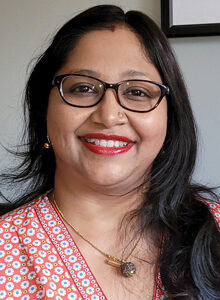As the South Asian community is growing in the United States, so is the focus on the community’s needs and concerns, with mental health being one of the major needs. Such needs often go unspoken due to social taboos and hesitation. The same holds true for the issues related to developmental disabilities, especially in multicultural groups like the South Asian community. The South Asian immigrant group is often grouped together with Asians and Pacific Islanders. South Asians are people from India, Pakistan, Bangladesh, Nepal, Sri Lanka, Afghanistan, Maldives and Bhutan. They are recognized as a model minority and often parents have extremely high educational and professional expectations of their children. While the community holds its superstitious ideas about developmental disabilities, many try to justify that developmental disabilities, especially Autism Spectrum Disorders (ASD), are non-existent.

According to the Centers for Disease Control and Prevention (CDC), “In 2010, 370,011 children 6 through 21 years of age and 49,251 children 3 through 5 years of age were served under the ‘autism’ classification for special education services,” and recently, “[a]bout 1 in 68 children has been identified with Autism Spectrum Disorder” (www.cdc.gov) based on the IDEA database. However, not all children get special education services and furthermore, IDEA data raises questions based on the way these numbers are categorized. The question is, do these numbers represent the children who went for an evaluation, got a diagnosis or are the ones actually enrolled in services? Also races are grouped together when IDEA presents the statistical data by races and by the states. South Asians and other Asians races are listed under one category, though they have significant differences in cultural ethnicities and languages. Thus, there is no segregated data on South Asian children with ASD and the kind of services that are offered to them. Researchers (Dyches, Wilder, Sudweeks, Obiakor & Algozzine, 2004) agree that “there is a dearth of quality work on multicultural issues regarding [ASD].” Dyche et al., questioned how ethnicity and race affects family adaptations towards raising a child with autism. Using the Resiliency Model, these researchers focused on the social support of multicultural families that aide in raising a child with autism. Dyches et al., in 2004 recommended that “…students with multicultural backgrounds and autism are challenged on at least four dimensions: communication, social skills, behavioral repertoires, and culture. Future research in these areas is clearly warranted.”
Similar recommendations were made by the author at the conclusion of her doctoral research in 2012. The author used contemporary Social Capital Theory to analyze the social support families get that aides their response to raising their autistic children, especially during the transition years during their young adulthood. The author had conducted research as a doctoral candidate in Yeshiva University’s Wurzweiler School of Social Work, New York. The research focused on the transitional challenges faced by parents and care givers of young adults with autism. Participating parents were asked to review the time they first heard their child’s diagnosis and compare the feelings with the current response to the transitioning challenges. Thus answering to one of the primary research questions: How did the parents address their initial stress and/or confusion related to their child’s diagnosis as they started their career as a parent compared to their coping strategies now at this transition stage?
South Asian participants of the study stated that they faced significant problems at the initial stages of their child’s diagnosis as they did not know what Autism is and its impact on their lives. They shared that they had never heard about ASD in their home countries. Additionally, cultural disconnections and language barriers further caused the discloser of the diagnosis to be challenging for the parents; that is, it was very difficult for these parents to understand the diagnosis and prognosis explained to them by the professionals. As a domino effect, these parents were unable to explain the diagnosis to their family and friends. Thus very limited support was gained. These are parents who had migrated in the 1970s and 1980s when internet was still a budding area; most of the knowledge about autism was purely based on self-teaching from books available in the libraries and information transmitted on television. Comparing their situation today, they still believe that though the approaches are “ever changing…but it is not really changing…autism is basically the same” (actual quote from author’s thesis, 2012).
While working with South Asian families, it is important that professionals be aware of cultural competency and provide language support as many clients are limited English proficient (LEP). These families bring along diverse family and cultural values that impact their adaptation to autism and mental health services that are offered. Proper disclosure of the diagnosis requires the correct use of language as, for many parents, this is the first time they would hear about autism, as in many South Asian countries this developmental disorder lacks an official recognition. Recently in 2011, Autism Speaks and the Government of Bangladesh launched a South Asian Autism network “to identify common challenges…and to form partnerships to develop solutions to meet the needs of South Asian families and individuals” (www.autismspeaks.org). However, it is still a long road to the network’s goal.
In the United States there is a lack of services for young adults who age out of school. In addition, when it comes to multicultural groups like South Asians, we hardly find appropriate supportive services. There is a disconnect between the professionals and the clients due to socio-cultural aspects and often a language barrier. Very little research has been done focusing on South Asian culture and issues related to autism and mental health. Also, there are several South Asian professionals who are both culturally and linguistically competent service providers but when one needs them they cannot be located. Hence, many families voluntarily decide to refuse services as they cannot connect with the service providers; those who do enroll are often left with inadequate services. Without a proper understanding of their autistic child’s needs, these parents find it hard to navigate the State Office of Developmental Disabilities and Department of Education. Additionally, they are unable to make better decisions for their children. This adds on to the unspoken mental health needs of the children and their parents/caregivers. Due to socio-cultural experiences, such families do not share their concerns and often live in taboos and continue feeding superstitions. They hesitate to speak up and seek help. This lack of seeking help is misunderstood by service providers as a lack of concern for their child. In the worst case scenarios, these parents are reported to child protection services as parents neglecting the needs of their child with special needs. Based on more than a decade’s experience of working with multicultural parents and professionals in child welfare services, the author believes that such chaos is created due to lack of knowledge and education of parents, and the stereotype ideas of professionals who lack cultural and linguistic competency.
As an initiative to help South Asian parents who have a child diagnosed with developmental disabilities, especially autism, the author has started a movement cum an organization called Resolveera (www.resolveera.org). One of the primary focuses of this organization is to educate and empower South Asian parents in the United States, and to provide training to direct service professionals to connect with their clientele with better cultural competency. Resolveera also aims at developing a database of South Asian professionals so that when agencies or families need such a professional they know where to seek help. The author believes that through Resolveera, collaborations can be made with educational institutions for future research to understand the mental health needs of South Asian parents with an autistic child and the development of needs-based services. Additionally, potential service providers can be trained through internships to be more aware of the needs of their clients and address them appropriately.
To summarize, the goal of the author’s initiative is to address the autism and mental health needs of the South Asian community which have not thus far been a topic of active research and adequate focus. It is important that professionals and service providers focusing on autism and mental health services collaborate and bring in expertise to a common platform to address the unspoken needs of a rapidly growing South Asian community in the United States of America.
For additional information please contact Veera Mookerjee, PhD, at veera@resolveera.org, 734-786-4042 or visit www.resolveera.org.
References
Dyches, T.T., Wilder, L. K., Sudweeks, R. R., Obiakor, F. E., and Algozzine, B. (2004). Multicultural Issues in Autism, Journal of Autism and Developmental Disorders, 34(2).
Autism Spectrum Disorder: Data & Statistics (March, 2014). Retrieved June 2, 2014 from Website: www.cdc.gov/ncbddd/autism/data.html
International Conference Launches Revolutionary South Asia Autism Network: The Government of Bangladesh and Autism Speaks Brings Together World Renowned Partners to Discuss Autism Research and Awareness in South Asia (July, 2011). Retrieved June 2, 2014 from Website: www.autismspeaks.org/about-us/press-releases/international-conference-launches-revolutionary-south-asia-autism-network
Mookerjee, Veera (May, 2012). Transitioning Young Adults with Autism: Hopes & Challenges for Parents , http://gradworks.umi.com/35/32/3532608.html






